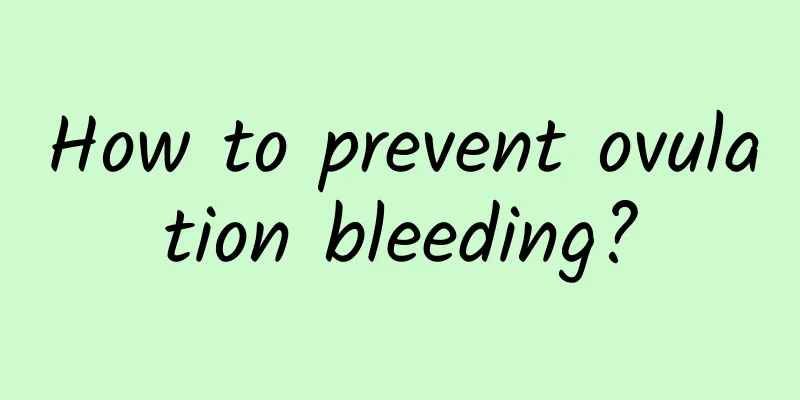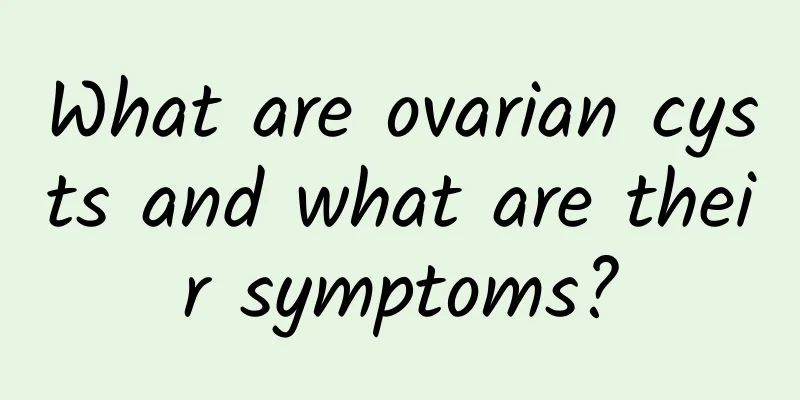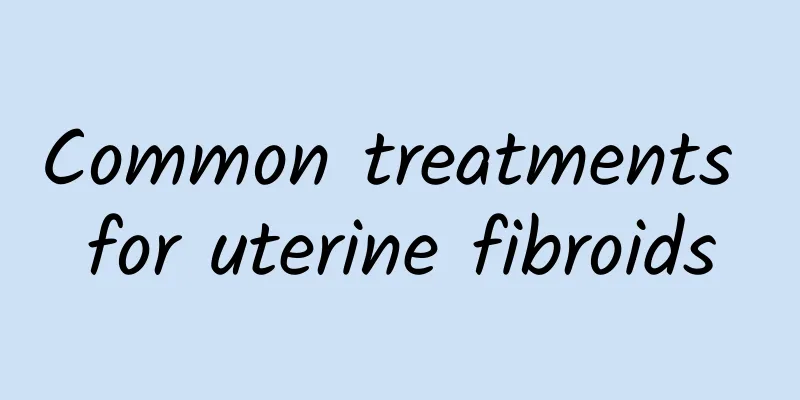How to prevent ovulation bleeding?

|
How can ovulation bleeding be prevented? Gynecological disease experts said that during a woman's non-menstrual ovulation cycle, due to a temporary decrease in estrogen levels, the follicles rupture, causing the endometrium to stop growing, thus causing symptoms of endometrial shedding and bleeding. Similar to menstruation, women may feel pain in the lower abdomen during ovulation bleeding, which is caused by the shedding of serous membranes and a small amount of blood accumulation in the pelvic cavity. However, it generally does not last for a long time, at most two or three days, and at least only a few hours. Ovulation bleeding is a common gynecological symptom. If it occurs once in a while, you need to pay attention to recuperation, have a regular diet and lifestyle, and maintain a good attitude to avoid the symptoms of ovulation bleeding. During the bleeding period, you need to pay attention to the following points: 1. Keep private parts clean to prevent pelvic infection; 2. Keep a stable mood and don't be too nervous; 3. Do not eat spicy food. You can apply hot compress to relieve stomach pain; 4. Do not overwork and take a rest; 5. Pay attention to daily physical exercise to improve your own resistance. Ovulation bleeding is a symptom that many women experience. The amount of bleeding is small, and some women only have brown discharge. It usually stops on its own in 2-3 days. Since ovulation bleeding is common, it does not mean that women can ignore it, because ovulation bleeding also has certain hazards. Clinically, the hazards of ovulation bleeding include the following: 1. Annoying symptoms: Although the amount of bleeding during ovulation is less, it is hard for female friends to guard against, thus affecting their normal life and work. 2. Abdominal pain: Patients with ovulation bleeding often have abdominal pain symptoms and periodic intermenstrual pain, which can be mild or severe and generally lasts for several hours. Some patients may last for 2 to 3 days. 3. Cause infertility: Men and women may stop having sex due to ovulation bleeding, thus missing the opportunity to conceive and eventually leading to infertility. 4. Harms of primary diseases: Reproductive tract diseases such as irregular menstruation, cervical erosion, cervical polyps, cervical cancer, endometrial polyps, submucous uterine fibroids, endometrial adenocarcinoma, etc. can also cause symptoms of ovulation bleeding. Therefore, if the primary disease that causes ovulation bleeding is not treated promptly and thoroughly, it may endanger women's health. |
<<: How to treat ovulation bleeding
>>: Does drinking Chinese medicine during ovulation bleeding affect pregnancy?
Recommend
Yoga exercise for beauty and weight loss is popular all over the world (Part 2)
Do's and Don'ts of Yoga Practice The reas...
What supplements should menopausal women take? Eat more of these in your life
Women must pay attention to their own maintenance...
Recurrence of Bartholinitis
In daily life, many female friends are troubled b...
What are the symptoms of congenital absence of vagina?
We all know that congenital absence of vagina is ...
Losing weight actually causes constipation. Find out the 4 main culprits
After food enters the body, it will become a pure...
What fruits are better for premature ovarian failure?
What fruit is better to eat for premature ovarian...
Understand the symptoms of external day shift and promptly discover the existence of diseases around you
Among gynecological diseases, the incidence of vu...
Precautions after cervical erosion surgery, these 7 nursing measures are critical
Cervical erosion is a relatively common gynecolog...
Can anger cause miscarriage? Let's take a look
Pregnant women are prone to mood swings during pr...
Can you tell after a girl has had an abortion?
Whether or not you can see the abortion depends o...
Analyze and understand the early symptoms of uterine fibroids
If uterine fibroids are not treated in time, they...
In what cases is it not suitable for women to have an abortion?
Abortion is the artificial termination of pregnan...
What are the daily dietary taboos after abortion? 3 dietary taboos you should pay attention to after abortion
After an unexpected pregnancy, women who choose p...
Women must pay attention to the precautions of abortion
With the development of society, the relationship...
How to Care for Endometrial Thickening
The cause of endometrial thickening is relatively...









